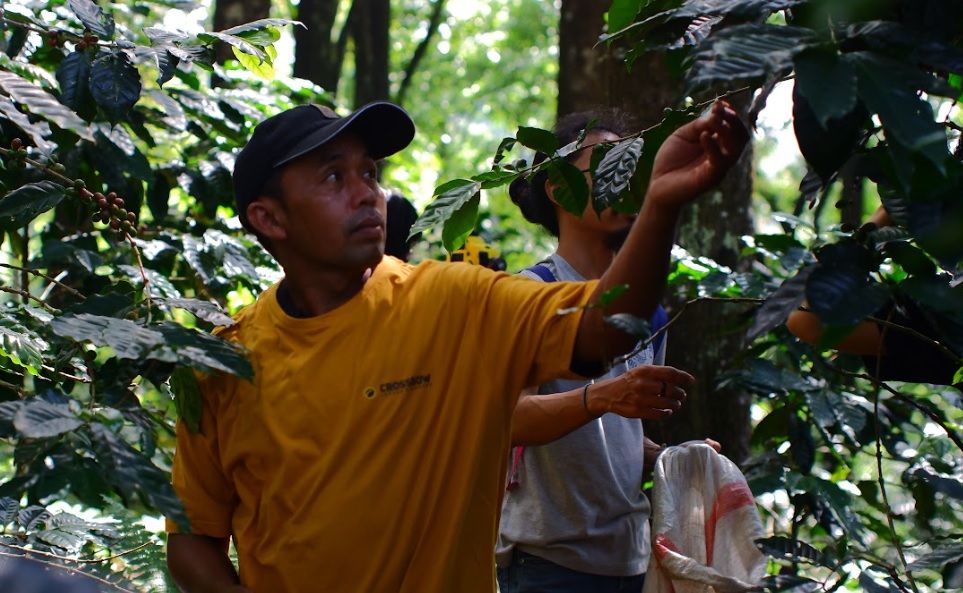Journey of coffee in indonesia
Indonesia Coffee Farmer Development Part II
Published: December 29, 2023 09:00 AM
Written by: Admin
Limited capital is the primary issue that coffee farmers deal with.
Even in situations when they do have access to formal financing from the banking industry, farmers frequently choose not to take part in the growing and processing of coffee. In an effort to help farmer organizations boost production, participate in related sectors like the provision of processing equipment, or fund transactions, numerous government support programs in Indonesia give them capital.

Lack of competition in these supply chain activities often leads to failure, as seen by the large number of processing facilities that have been abandoned throughout producing regions. Coffee producer associations in Bali, Flores, and Sulawesi have also received upfront financing from roasters; however, due to their limited ability to oversee operations, this funding has been diverted to meet non-coffee related demands.
In Indonesia, it is rare for families in the countryside to farm for profit, therefore being indebted and integrating into the financial system could be detrimental. Instead, for Indonesian households where risk aversion is critical, coffee often provides a solid livelihood option.
A particular region's coffee has a better flavor than others.
There are several areas that are well known for producing excellent coffee (Toraja or Gayo in Indonesia, for example). This is sometimes attributed to local traditions and geographical conditions (such as elevation, soil, tree cover, etc.), leading people to believe that all coffee cultivated in that area has the same quality characteristics.
The widespread use of place-based marketing by many domestic and foreign roasters, which is used to promote various coffee origins even if roasters themselves are more skeptical in their evaluation of the significance of location in quality, has greatly influenced the conventional wisdom. Around the world of coffee, notably in Indonesia, this has led to a great deal of interest in geographical indicators.
misconception is commonly held by government officials who have little knowledge about the production and quality of coffee. At best, it is just partially true. Physical geography and post-harvest processing methods work together to develop quality, with the latter being the main factor to consider. Bad coffee can be produced in areas that are otherwise well-known for producing outstanding coffee, and if quality control is not maintained, it can happen anywhere in the processing chain. Development projects that only consider geographic location and disregard quality control procedures will not be able to sustain high market demand.
Agricultural producers are best organized through farmer cooperatives.
Four of our case studies featured cooperatives, and the other two featured producer organizations that looked similar cooperatives. Increasing the "dealing power" of farmers is one of a cooperative's goals, but supply and demand dynamics on a worldwide scale typically decide coffee pricing. Increased dealing strength for a local cooperative of farmers is based upon its functioning as a farmers union and the successful management of free-riding, both of which appear unrealistic.
Value chains are becoming more and more buyer-driven, and farmer cooperatives have little leverage over retailers and other leading companies—even in industrialized nations with extensive cooperative traditions. Only when cooperatives can offer services to buyers and members more efficiently than other value chain arrangements will they be successful, and this is frequently not the case.
Buyers anticipate that cooperatives, in dealing with separated smallholders, will offer economies of scale. According to our observations, the ideal cooperative that both roasters and development actors hold is frequently very different from what really exists in Indonesia, carrying the danger that an organizational structure that is poorly fitted gets priority over other options that might be more appropriate, including local collector networks.
Higher grade coffees are the outcome of relationships
When cafe owners and roasters purchase coffee directly from farmers, they frequently anticipate receiving higher-quality beans. These purchasers aren't usually knowledgeable supply chain managers, though. Since many specialty roasters are tiny companies with minimal turnover, it's possible that they lack the economies of scale necessary to hire supply chain experts.
It makes sense for farmers to sell coffee at a quality level that only partially satisfies the buyer's quality control system while minimizing their own costs and effort, given that the buyer lacks the expertise or resources to perform demanding quality controls at the farm gate. Because of this, it appears that over the past ten years, numerous small buyers of coffee at the farm level in Indonesia have increased competition, which has raised prices (at least temporarily) but also led to a decline in quality that will likely have longer-term effects on industry prospects.
